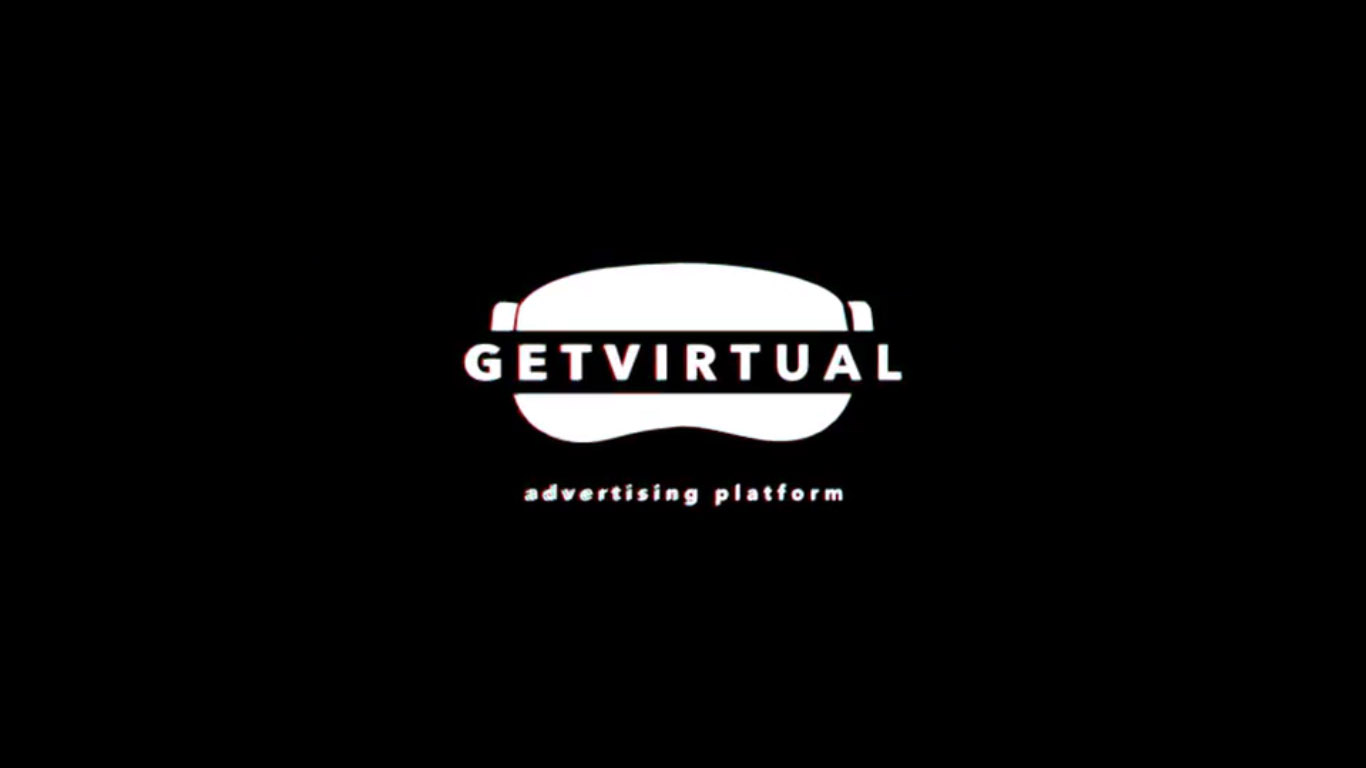A talk about advertisement in virtual reality with Get Virtual
Some times ago I got in touch with Get Virtual founder Michael Rapoport and we had the opportunity to talk a bit about virtual reality advertisement.

Advertisement. Yes, that thing on which some of the most powerful IT companies make all their business: think about Google, or Facebook for instance. They all make bazillions of dollars thanks to smart advertisement. Internet has been one of the key revolutions in the computer science history, something that has revolutioned completely our life. The following revolution, lead by smartphones, has made possible the connectivity in every moment and in every place, making possible the social revolution. All these revolutions have been completely interconnected with sales and so with advertisement: now, wherever you are, you can see a targeted ad and buy something that you just discovered you love from a shop that is on the other side of the world. Virtual reality and augmented reality will lead the next computing revolution and we’re asking ourselves: how advertisement will be on those platform?
I’ve tried talking with it making some questions to Michael, which has founded Get Virtual, a company in Florida focused on virtual reality advertisement. Here you are the questions I’ve made him, with his answers and some comments by me in the end.
Who are you and what your company does?
We created an ad platform and patent process to integrate 3D models into an environment.
AR/VR advertisement seems interesting… how do you provide that? It is like product placement in movies?
Yes. It’s dynamic product placement. Dynamic being the emphasis. More than 1 company can bid same “episode” product placement, targeted results, etc.
How do you calculate an “impression”? So, how do you know that the user has looked at an Item?
By GAZE. Simple stuff.
Ok, you use gaze for impressions. But this means that if I enter in a room where there is your product placement, e.g. a Coca-cola poster, and I enter the room without looking exactly at that poster, it doesn’t count as impression?
Correct, so advertiser doesn’t pay for it. That’s the point. Why pay when no one is viewing it?

What can you do upon a click? In a browser it’s easy, since you just open a new tab… but in a VR experience you can’t open a browser tab!
Watch a video, open up an in-app store, in-app browser, etc. oculus has a browser, so do other devices.
The browser that you open to show the click contents, opens up filling the user’s visual or it will just open a little window inside the current VR experience?
Depends on how developers build it, some are making in-app browsers that are even themed to the game
I’m a Unity developer. Can I use your platform inside my games? How easy is to integrate it?
Yes, you use our Holonodes, place inside the environment and set the ID to the category of ads you want.
I’m a bit concerned that AR/VR experiences will be flooded with all kinds of banners like website nowadays… what can you say about this?
Spam filters will exist... they will have to!
I’m a bit concerned in AR ads privacy issues… so that in the future I’ll go to the supermarket, look at a product and then get flooded by all ads about that product (a scary version of present Adwords)…. what can you say about this?
In regards to the store, the publisher i.e. Walmart has 100% control what exists in their environment. I can imagine them having set limitations to prevent this. So in short, we work with nothing parties to create the best experience.
How do you envision the future of *R advertisement?
Exactly as you do. AR/MR hologram ads.
Anything more to add? Is there something you would like to say to your possible customers?
Virtual Reality is the future. What I love is that it aligns the needs of consumers with the products and services of producers in a virtual world, saving time, money and increasing satisfaction. Whether you create a 360 video of a Beyoncé concert or take a virtual tour of your future home, the possibilities are endless.

This has been the interview. Some comments by me, now (if you’re interested in reading them, of course!)
First of all I see from that interview that VR advertisement looks a lot like product placement in movies or TV shows. This is exactly how it should be, in my opinion. What we all hate of Internet banners are all those pop-ups, pop-unders, pop-whatever that are just made to appear suddenly wherever your mouse pointer is, just to get the money of the pay-per-click. This surely ruins our experience. I like the vision of Get Virtual because it makes advertisement inobtrusive, since it is completely part of the environment, it is fused with it, it is normal as entering the kitchen of a house and seeing a coke of a particular brand. The banner serves only the purpose of making the user informed about a brand and then, if the user is interested, can interact with it and buy the product. Here I think that it is also important that the buying process is inobtrusive of the experience and is fused with it, too.
I like this approach because I fear a future when while I play VR, lots of widgets pop-up everywhere in my field of view to make me buy their products. Considering that in VR everything is more “real”, impacts our brain more, seeing too many pop-ups would be some form of harassment in my opinion.
Another thing that I like is the “pay-per-view” happening only if the user has actually seen the branded product. This way the payment is fair: in a webpage pay-per-view banner, I may have loaded the page without seeing the banner. As an engineer I doubt there’s a perfect method to understand if the user has actually paid attention to some product, but there are surely lots of methods to have an idea about it.

Thinking about banner, I was also thinking about NoScript. Lots of people disable banner visualization inside their browsers: will this be possible in virtual reality? It will be technologically possible to disable the advertisement? And if the products are blended into the experience, removing the product can ruin the experience? (For instance, to go on inside the game you should drink the coke… so you can’t remove the coke game object or you will get struck. So, what ad block programs will do? Remove the texture only?).
The last part of the interview is the one that scared me the most and Michael didn’t manage to make me relax (maybe he should have pointed me to some VR relaxation app…). I’m very scared by *R advertisement for these reasons:
- The psychological impact: VR elements have a greater psychological impact than the one seen on a flat screen. Lots of advertisements in TV are focused on sex stuff (sexy girls, etc…) or other strong emotions. Conveying all these strong emotions all the time while we’re in our *R world can make our brain go crazy;
- The constant exposition: in the far future we’ll wear AR glasses all the time, so we’ll be connected every time and we’ll see banners all time;
- The data gathering: VR/AR devices will have access to precious informations, like where we are; what we are looking at (pupils tracking); what’s our heart rate; brainwaves data (there’s a lot of research on it); how we move; what we’re looking at (AR glasses have lots of forward cameras that see what we see all the time). This data will make advertisers to know every single aspect of our life and this scares me a lot. I don’t believe in companies auto-limitating themselves and I’m very afraid about what we’ll happen, considering that for example facebook has already destroyed a lot in our idea of privacy. Maybe some laws would help.
Anyway, apart from my fears of the future (that I hope that smart people will solve for me), I’m very curious about how advertisement will evolve in the future. I sincerely hope the best for Michael and Get Virtual, because I really like their idea of product placement advertisement.
And you? What’s your opinion about advertisement in *R technologies? Let me know in the comments or on twitter!
Disclaimer: this blog contains advertisement and affiliate links to sustain itself. If you click on an affiliate link, I'll be very happy because I'll earn a small commission on your purchase. You can find my boring full disclosure here.



